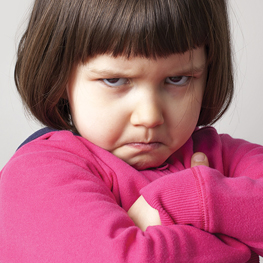
What do you do if there is a fight at an after-school class or program between your child and another? As a father and a grandfather, I have witnessed my share of disagreements. And as a mediator and a restorative justice counsellor, I ought to have some tools in my toolbox to manage such a situation. Here are my two parenting lessons from a long career of working out children’s conflicts.
Conflict is normal. Fighting, arguing, and disagreeing are all healthy and normal ways to expand boundaries, grow, express oneself, and learn about relationships. Instead of preventing conflict from occurring, celebrate the fact that your child is developing confidence even when the moments chosen by them are not the best ones.
How conflict is resolved teaches your child important lessons about interacting with others. If the resolution of the conflict is about winning and losing, then a. conflict can become a tool to get something and b. to avoid conflict is a way of avoiding losing something. From a relationship point of view, learning these lessons early as a child influences their future relationships in a negative way. A different lesson that you can teach your child is how to resolve conflict in a way that repairs the relationship, teaches empathy, and maintains dignity.
How do you teach conflict resolution skills to your kid? While in practice things seldom evolve in a discreet, step-by-step way, there are three distinct phases: One is establishing an account of what happened. Another is exploring the impact of the disagreement on the other child (or you). The final step is a discussion of what repair to the relationship can look like.
Establishing an account of what happened is about creating a timeline of the events. The purpose is to build a joint story, one that everyone can agree with. It is important to avoid establishing the ‘truth’ to assign blame. By using questions like, “What happened next?” and “What did you do then?”, and by summarizing and combining everyone’s contribution to the story, you are helping your child to retell the events as concretely as possible as an observer, not as a participant. The observer perspective helps your child to gain some distance from the situation and become more objective about their own role in the event.
When exploring the impact of the event, the goal is to teach your child compassion and empathy. These skills are not easily learned and require practice. The second function of this stage is to help your kid acknowledge and process their own feelings. Asking questions like, “How did that make you feel?” and “How do you think this made Susan feel?” enrich your child’s emotional intelligence and establish a connection between actions and emotions.
The final step, exploring what a repair to the relationship can look like, is about connecting in a normal, healthy way. Asking questions like, “What would make you feel better?”, “How would you want to be treated?” and “What would be helpful to Bob?” encourage your child to think about the future.
Like most things in life, to make a new skill part of your skill set takes time and practice. Be patient with yourself and your child. Every child and every situation is different, requiring you to adjust how you apply each step. The best advice is to practice with good intentions and positive results will follow.
Tips and how-tos
Establishing a joint story sample questions:
Summarize the answers in a story that follows a timeline and incorporates everyone’s responses, e.g. “If I understood this correctly, Chris was playing with the toy when you came into the room, then…”
Exploring the impact sample questions:
Repairing the relationship sample questions:
“What would make you feel better?”
“What do you think would make Chris feel better? How can we fix this?”
“What should we do differently next time?”
Georg Stratemeyer is a Family Mediator. He obtained a Master’s Degree in Conflict Analysis and Management and has worked with conflict for more than 20 years as a youth counsellor, facilitator, and mediator. He can be reached at This email address is being protected from spambots. You need JavaScript enabled to view it..
Calgary’s Child Magazine © 2024 Calgary’s Child